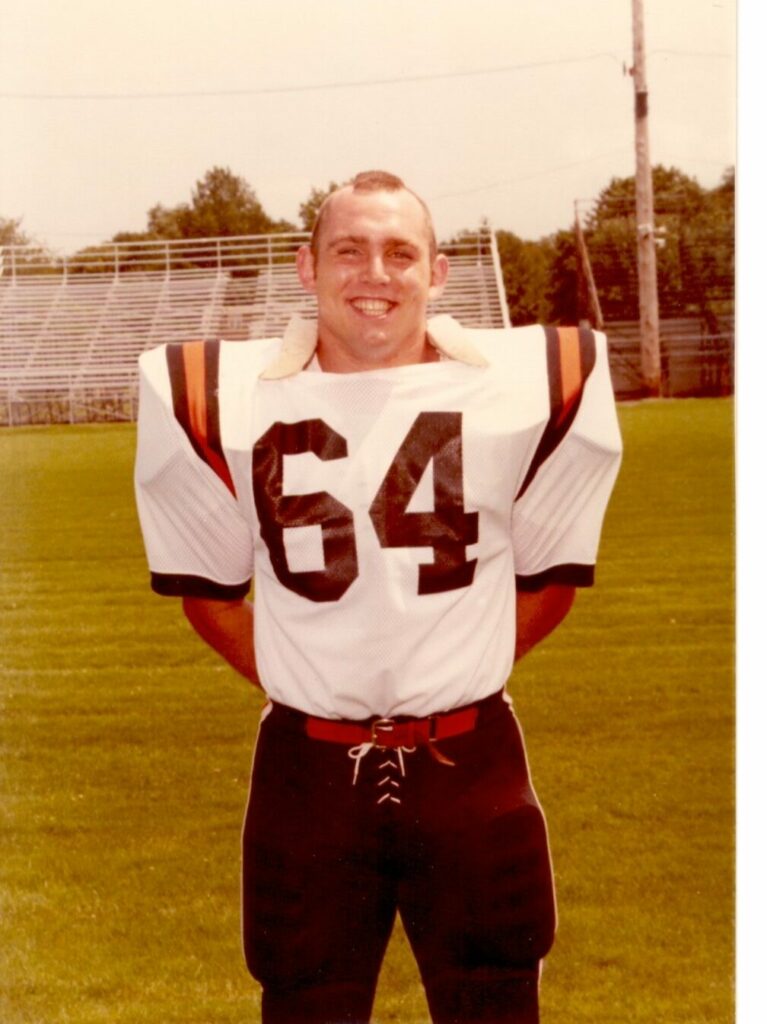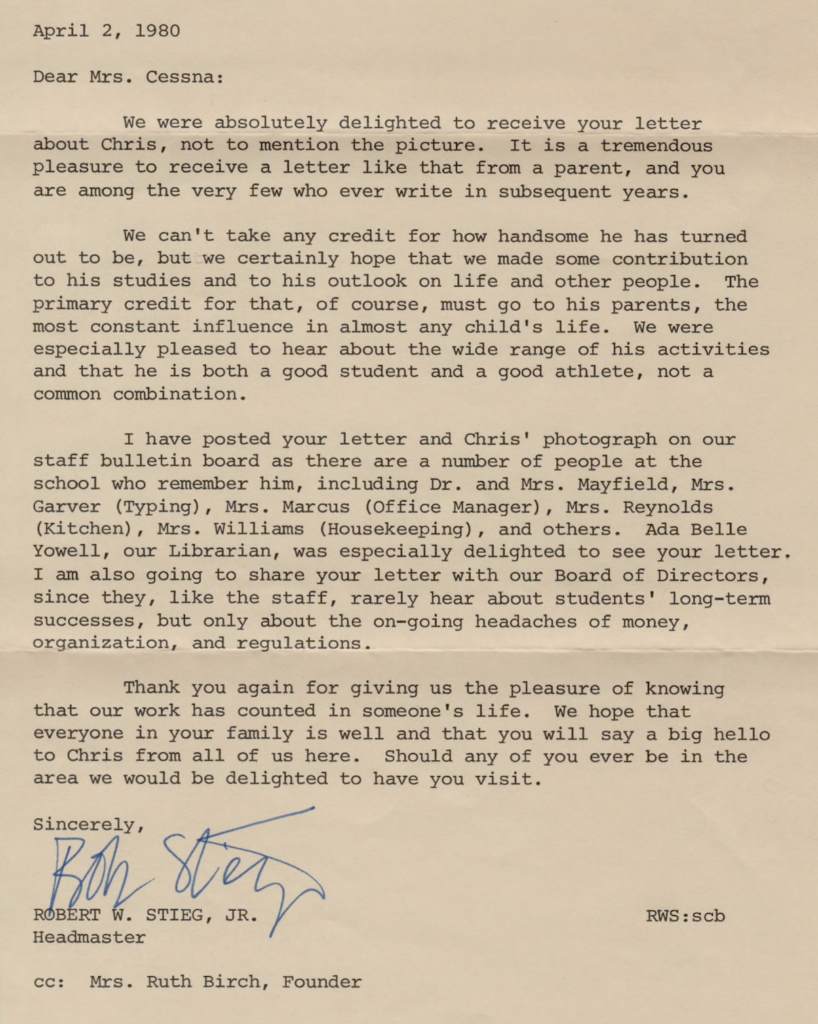50 Years After Leaving Grafton, Alumnus Leads Successful Law Career
By fourth grade, Chris Cessna was a regular visitor to his elementary school principal’s office. Looking back, he remembers being a normal kid, albeit one who took on the role of class clown and enjoyed getting into mischief. Chris grew up near Canton, OH, and he describes his younger self as hyperactive — which likely contributed to the near-constant phone calls his parents received from the school.
After an unsuccessful attempt by a local psychologist to treat Chris with medication, his mother found Grafton. “My mom credits Grafton with saving my life,” he says. At the Berryville campus, Chris was taken off of the medication Ritalin, which had caused him to gain weight and feel dazed. He remembers it having an immediate impact on his health. “I shot up a foot and lost tons of weight right away. I immediately felt better.”
Chris spent his fifth-grade year (1973) living and receiving treatment at Grafton. At first, he was homesick and wanted to go home. Shortly after his arrival, he yelled at his parents over the phone for enrolling him there–an outburst that landed him in the headmaster’s office. Before long, though, his attitude toward treatment changed.
During his year at Berryville, Chris met people who had an invaluable impact on his life. “Everybody there was just there for the right reasons. They really cared about the kids,” he says. “You always felt like they loved you and wanted the best for you.”
His first counselor at Grafton was a young woman named Carol Sue Jackson. Looking back, Chris describes Jackson as very loving and caring. She was one of the first people on campus to build a trusting relationship with him, and he gives her a good deal of credit for his successful treatment.
Of course, there were many others who made a difference as well. His teacher, Ms. Duggan, helped him improve his studies and even achieve above what was expected for his grade level. Another teacher delivered engaging lessons about ancient Greece, which piqued Chris’s interest. He believes the focused learning and small classes at Grafton were key to helping him excel at his studies.
In addition to this academic growth, Chris’s physical health and behavior improved. He found room to run, exercise, and play with other kids. He also found adults who acknowledged his good behavior in addition to redirecting him when he behaved poorly.
Each week, Chris and the other kids at Grafton were placed into groups, numbered 1-6, based on the behaviors observed by the counselors, teachers, and other adults on campus. Chris believes this system* had a positive impact on him, motivating him to earn the privileges that came with belonging to a higher ranked group for the week. (*This system has been modified over the years, based on advancements in psychology and treatment methods.)
When Chris returned to public school in sixth grade, his old friends couldn’t believe how he had changed. “I had more self-esteem, and I was focused on achieving goals,” he says. He became captain of his football team, earned good grades, and found that he was better able to focus in school after his year at Grafton.
After high school, Chris attended Colorado State University and worked as a federal law enforcement ranger for 10 years. Eventually, he enrolled in law school at the University of Denver. Today, Chris has his own criminal law practice in Denver, which he’s operated for 19 years.
Chris credits Grafton and the impactful people he met here with improving his life and enabling him to find success in his career. “It changed my life,” he says. “I could easily have gone in a different direction.”
Chris shared the following letter, written by Grafton CEO Bob Stieg (1959-2002), in response to a letter from his mother:

